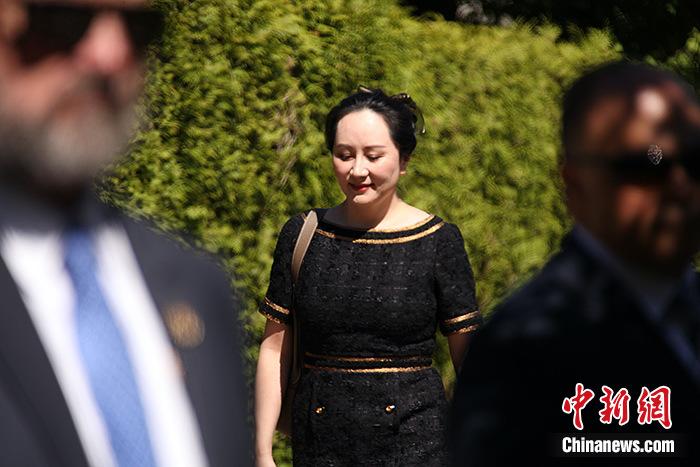China News Service, Toronto, January 29 (Reporter Yu Ruidong) The judge of the High Court of British Columbia, Canada, on January 29, local time in Vancouver, rejected the application for changing bail conditions filed by Meng Wanzhou, vice chairman and chief financial officer of Huawei. .
Judge William Ehrcke believes that since Meng Wanzhou was arrested in Canada for more than two years, there has been no change in the bail-related situation, so the judge did not think it necessary to change the bail conditions.
Data map: Meng Wanzhou, vice chairman and chief financial officer of Huawei.
Photo by China News Agency reporter Yu Ruidong
In mid-January, the prosecution and the defense debated in court whether to relax Meng Wanzhou’s bail restrictions.
Meng's defense lawyer believes that the relevant arrangements of the security company put it at risk in terms of epidemic prevention.
During the period, the security company also confirmed that multiple threatening letters containing bullets were sent to Meng Wanzhou’s residence, and the Vancouver police have been involved in the investigation.
The judge finally did not support Bangladesh's application.
According to the court schedule, the extradition case of Meng Wanzhou will be reopened in Vancouver on March 1 this year. Hearings will begin around the four branches of procedural abuse.
The relevant hearing is expected to last until mid-May.
The defense lawyer team of Bangladesh believes that there is a problem of procedural abuse in this case and the extradition procedure should be suspended.
The defense has set up four branches to initiate the complaint: one is to prove the political nature of the case by a high-level U.S. politician; the second is to demonstrate that Canadian law enforcement agencies have abused procedures during the detention of Meng at Vancouver International Airport; and the third is to point out the direction of the United States. The case records and other documents provided by the Canadian side are misleading and contain "major omissions and misstatements." Fourth, they believe that this extradition case violates customary international law.
(Finish)

